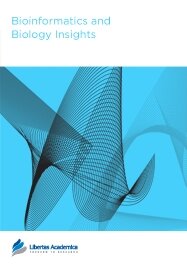

Publication Date: 11 Oct 2010
Type: Original Research
Journal: Bioinformatics and Biology Insights
Citation: Bioinformatics and Biology Insights 2010:4 99-111
doi: 10.4137/BBI.S5498

Arsenic is a toxic metalloid that causes skin cancer and binds to cysteine residues—a property that could be used to infer arsenic responsiveness of a target protein. Non-synonymous Single Nucleotide Polymorphisms (nsSNPs) result in amino acid substitutions and may alter arsenic binding with cysteine residues. Thus, the objective of this investigation was to identify and analyze nsSNPs that lead to substitutions to or from cysteine residues as an indication of increased or decreased arsenic responsiveness. We hypothesize that integration of data on molecular impacts of nsSNPs and arsenic-gene relationships will identify nsSNPs that could serve as arsenic responsiveness markers. We have analyzed functional and structural impacts data for 5,811 nsSNPs linked to 1,224 arsenic-annotated genes. In addition to the identified candidate nsSNPs for increased or reduced arsenic responsiveness, we observed i) a nsSNP that results in the breakage of a disulfide bond, as candidate marker for reduced arsenic responsiveness of KLK7, a secreted serine protease participate in normal shedding of the skin; and ii) 6 pairs of vicinal cysteines in KLK7 protein that could be binding sites for arsenic. In summary, our analysis identified non-synonymous SNPs that could be used to evaluate responsiveness of a protein target to arsenic. In particular, an epidermal expressed serine protease with crucial function in normal skin physiology was prioritized on the basis of abundance of vicinal cysteines for further research on arsenic-induced keratinocyte carcinogenesis.
PDF (2.46 MB PDF FORMAT)
RIS citation (ENDNOTE, REFERENCE MANAGER, PROCITE, REFWORKS)
Supplementary Files 1 (268.80 KB XLS FORMAT)
BibTex citation (BIBDESK, LATEX)
XML
PMC HTML
Bioinformatics and Biology Insights helps to reach all people with the latest results on research which directly helps them and with their needs. Three of our co-authors are from Burkina Faso, the malaria holoendemic region our research is based on, and serving as motivation for all our efforts for better treatment of malaria. It is good to be social and it is good to promote science world-wide through open access.

All authors are surveyed after their articles are published. Authors are asked to rate their experience in a variety of areas, and their responses help us to monitor our performance. Presented here are their responses in some key areas. No 'poor' or 'very poor' responses were received; these are represented in the 'other' category.See Our Results
Copyright © 2013 Libertas Academica Ltd (except open access articles and accompanying metadata and supplementary files.)
Facebook Google+ Twitter
Pinterest Tumblr YouTube